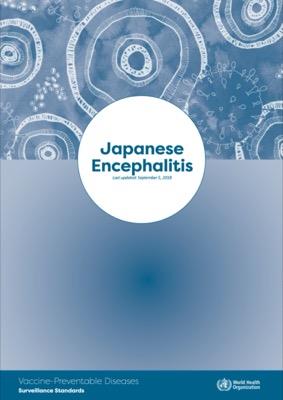Japanese Encephalitis: Vaccine Preventable Diseases Surveillance Standards
4 September 2018
| Publication

Overview
Japanese encephalitis ( JE) is one of the most common
encephalitides worldwide, with an estimated 68 000
cases and 13 20–600 400 deaths annually (1). The
disease is caused by a mosquito-borne flavivirus and
is found across south and east areas of Asia (currently
24 countries with JE virus transmission).
JE virus
is transmitted to humans through the bite of infected
Culex mosquitoes, which lay their eggs in irrigated rice
paddies and other pools of stagnant water. Pigs and
birds serve as amplifying vertebrate hosts. Humans are
believed to be dead-end hosts, as viremia is too low to
infect feeding mosquitoes.
WHO Team
Essential Programme on Immunization (EPI),
Immunization, Vaccines and Biologicals (IVB)
Number of pages
12
Copyright
World Health Organization
